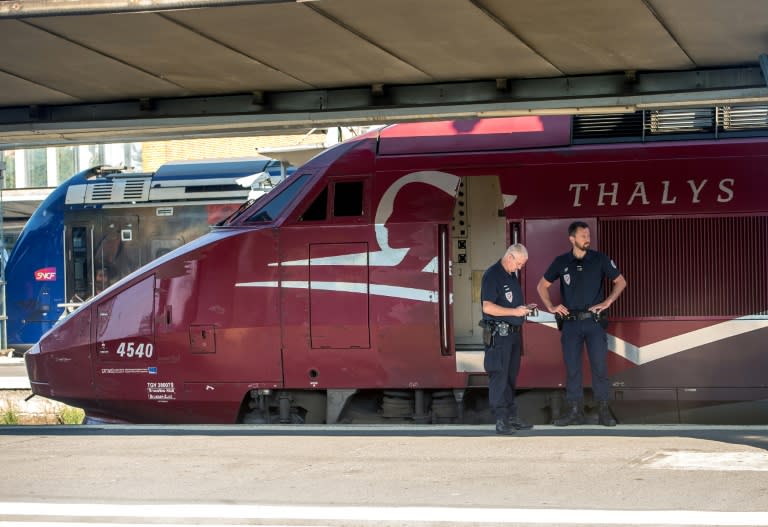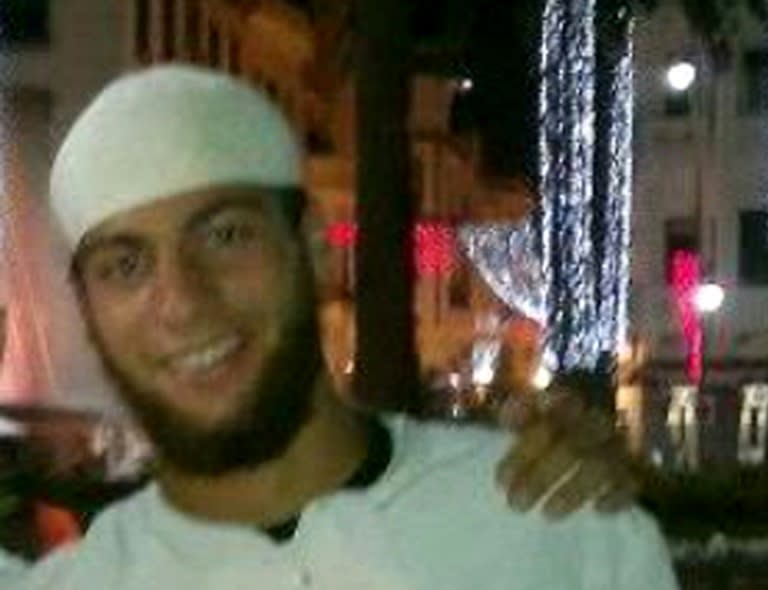European ministers to talk security in Paris after train attack
European ministers gather in Paris Saturday for security talks following last week's "targeted and premeditated" jihadist attack on a high-speed train that was foiled by passengers. Prosecutors have charged 25-year-old Moroccan Ayoub El Khazzani over the attack, which saw him step out of a toilet cubicle in the Amsterdam-Paris train armed with an assault rifle, 270 rounds of ammunition and a Luger pistol strapped to his chest. But he was stopped in his tracks by several French passengers, two young American off-duty servicemen, their student friend and a 62-year-old British consultant who have since been awarded France's top honour, the Legion d'Honneur. One of the French passengers was shot and seriously injured in the struggle to overpower the gunman, and he is recovering in hospital. Following the thwarted bloodbath, interior and transport ministers from European countries that neighbour France, and EU commissioners decided to gather in Paris to discuss security measures. The meeting will include ministers from Germany, Britain, Italy, Spain, Belgium, Luxembourg, the Netherlands and Switzerland, as well as France. - Systematic checks - "(It) will... look at very concrete proposals," French Interior Minister Bernard Cazeneuve said earlier this week. "Can we implement simultaneous and coordinated checks in EU countries?," he asked. "We must examine whether we can implement a system that allows for more systematic checks in airports, in public transport, in a more coordinated way." A source close to Cazeneuve said that the ministers would -- among other things -- talk about the feasibility of carrying out targeted checks on people who, for instance, have come from Turkey, a common entrance point to Syria for would-be jihadists. Khazzani had been on the radar of several European intelligence agencies after authorities in Spain, where he lived until 2014, flagged him as a radical Islamist. But the 26 countries in Europe's Schengen area have abolished border controls, which means people living in or visiting those nations can travel virtually undetected if they are not the subject of random checks. He left Spain for France, where he worked for a mobile phone operator for several months before being let go and disappearing. Then in May this year, he popped up on the intelligence radars once again when German authorities warned he had boarded a plane in Berlin bound for Turkey. In June, he landed back in Albania, and on August 21, Khazzani boarded the train in Brussels, where his sister lives and he is believed to have spent some time. Aside from security, ministers in Paris are also expected to take advantage of the talks to touch on the ongoing migration crisis in Europe, where people fleeing wars, hunger and authoritarian regimes are flocking to at huge risks to their lives.




